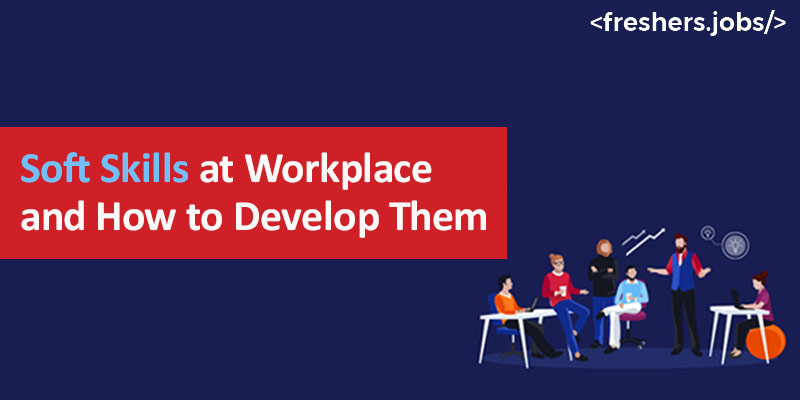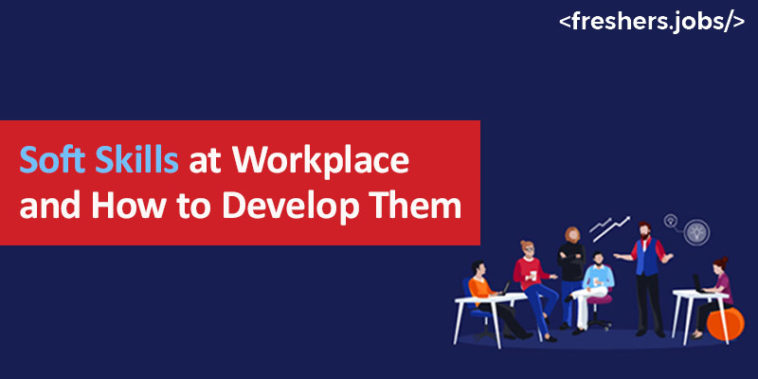Soft skills are the personal attributes and abilities that allow individuals to interact effectively with others in a workplace. These skills are often intangible and difficult to measure but essential for any profession’s success. Soft skills are not specific to any industry or role. Still, recruiters value them as they enhance an individual’s ability to work well with others and navigate workplace dynamics.

Examples of soft skills include communication, teamwork, time management, problem-solving, adaptability, and leadership. These skills can be developed with practice and experience, significantly impacting an individual’s career progression and overall job satisfaction.
Soft skills are more important than ever in today’s fast-paced and constantly changing work environment. They enable individuals to build strong relationships with colleagues, customers, and clients and effectively communicate and collaborate on projects. By focusing on developing and refining soft skills, individuals can improve their career prospects and contribute to the success of their organisation as a whole.
This blog on freshers jobs explains the importance of soft skills in the workplace and provides advice on enhancing your soft skills.
Why are Soft Skills in the Workplace Important?
Soft skills are essential in the workplace for several reasons:
Effective Communication: what is soft skills? Soft skills enable individuals to communicate effectively with colleagues, customers, and clients. Clear and concise communication helps avoid misunderstandings, improves collaboration, and ensures everyone is on the same page.
Teamwork: Soft skills such as working together, empathy, and conflict resolution help individuals work effectively in teams. When team members have solid and soft skills, they can work together to achieve shared goals, overcome challenges, and support one another.
Problem-Solving: Soft skills such as critical thinking and creativity, one of the importance of soft skills are essential for problem-solving. Individuals with solid and soft skills can think outside the box, consider different perspectives, and develop practical solutions when faced with a challenge.
Adaptability: Soft skills such as flexibility and resilience are essential in today’s fast-paced and constantly changing workplace. Individuals who adapt to evolving circumstances and navigate ambiguity are more likely to succeed in their roles.
Leadership: Soft communication and emotional intelligence skills are essential for effective leadership. Leaders who inspire and always motivate, encourage their teams, provide constructive feedback, and build strong connections and relationships with their teammates are more likely to achieve their goals and drive organisational success.
Freshers can look out for the latest openings from freshers jobs in Hyderabad if you have the right soft skills.
List of Soft Skills
Here’s a list of some common soft skills, along with detailed explanations:
Communication: The ability to communicate effectively is critical in the workplace. This involves both verbal and written communication, as well as active listening. Good communication skills help avoid misunderstandings, build relationships, and ensure everyone is on the same page.
Teamwork: Working well in a team requires collaboration, empathy, and managing conflict. When team members have solid and soft skills, they can work together to achieve shared goals, overcome challenges, and support one another.
Time Management: Managing one’s time effectively is essential in any role. This involves setting priorities, managing deadlines, and avoiding procrastination. Good time management skills help individuals to be more productive, meet their goals, and prevent burnout.
Problem-Solving: The problem-solving ability is the soft skills at workplace that involve critical thinking, creativity, and considering different perspectives. When faced with a challenge, individuals with solid and soft skills can think outside the box, develop practical solutions, and learn from their mistakes.
Adaptability: Adapting to change is important in today’s fast-paced workplace. This involves being flexible, open-minded, and willing to learn new skills. Individuals who can adapt to changing circumstances are more likely to succeed in their roles.
Leadership: Effective leadership involves communication, empathy, emotional intelligence, and the ability to inspire and motivate others. Leaders who can build strong relationships with their colleagues, provide constructive feedback, and create a positive work environment are more likely to achieve their goals and drive organisational success.
Creativity: Creativity has high importance of soft skills involve thinking outside the box and developing innovative ideas. This skill is essential in many roles, as it helps individuals to solve problems, improve processes, and create new products or services.
Critical Thinking: Critical thinking involves analysing information, evaluating arguments, and making evidence-based decisions. This skill helps individuals to make informed decisions, solve complex problems, and avoid common biases or fallacies.
How to improve Soft Skills?
Here are a few of the preparation tips to improve your soft skills.
Develop Strong Communication Skills
Effective communication is essential for success in any workplace. To improve your communication skills, start by actively listening to others. This means paying attention to what they say, asking clarifying questions, and responding thoughtfully. Additionally, focus on your communication style, ensuring your messages are clear, concise, and confident. Practice speaking in public, giving presentations, and expressing your ideas clearly and concisely.
Build Your Emotional Intelligence
Emotional intelligence refers to the ability and soft skills at workplace to recognise and manage your emotions and those of others. It is vital to workplace success, as it helps individuals build positive relationships with colleagues and clients. To improve your emotional intelligence, start by becoming more aware of your emotions and how they impact your behaviour. Learn to recognise the emotions of others and practice responding with empathy and understanding. Additionally, develop your social skills, such as active listening and effective communication, to get more job opportunities.
Practice Effective Time Management
Effective time management is a crucial skill in the workplace, as it helps individuals prioritize their tasks, manage their workload, and meet deadlines. To improve your time management skills:
- Create a daily schedule and prioritise your tasks.
- Breaking large projects into smaller, more manageable tasks and setting deadlines for each.
- Use the latest technology tools like calendars, task lists, and reminders to help you stay organized and on track.
Develop Your Problem-Solving Skills
Problem-solving skills are critical in the workplace soft skills, as they help individuals identify and overcome obstacles and find creative solutions to complex challenges. To improve your problem-solving skills, start by developing a systematic approach to problem-solving. This means separating complex problems into smaller, more manageable components and identifying potential solutions.
Develop Your Teamwork Skills
Teamwork is essential in the workplace, enabling individuals to collaborate effectively and achieve shared goals. To improve your teamwork skills, build positive relationships with your colleagues. This means being respectful, supportive, and collaborative and actively seeking collaboration opportunities. Additionally, be open to feedback and constructive criticism, and learn to communicate effectively with others.
Develop Your Leadership Skills
What is soft skills at workplace? Leadership skills are critical in the workplace, enabling individuals to motivate, inspire, and guide others towards shared goals. To improve your leadership skills:
- Develop a clear vision and mission for your team or organisation.
- Communicate this vision to others, and seek opportunities to lead and guide others towards its realization.
- Learn to motivate and inspire others and develop coaching and mentoring skills.
Almost all companies hire freshers who have the right soft skills. Henceforth, tap to Capgemini careers for freshers.
Practice Active Listening
Active listening is a critical soft skills at workplace, enabling individuals to communicate effectively and build positive relationships with others. To improve your functional listening skills, start by focusing your attention on the speaker and avoiding distractions. Ask clarifying questions, and repeat what you’ve heard to ensure you understand the message. Additionally, be open-minded and receptive to new ideas and perspectives, and practice empathy and understanding.
Conclusion
I hope you are clear on soft skills in the workplace and how to develop them. Soft skills are essential for success in the modern workplace to earn a high salary. While creating these skills may take time and effort, the benefits are worth the investment. By prioritizing your soft skill development, you can become a more effective and valuable contributor to your workplace and position yourself for long-term success in your career.



